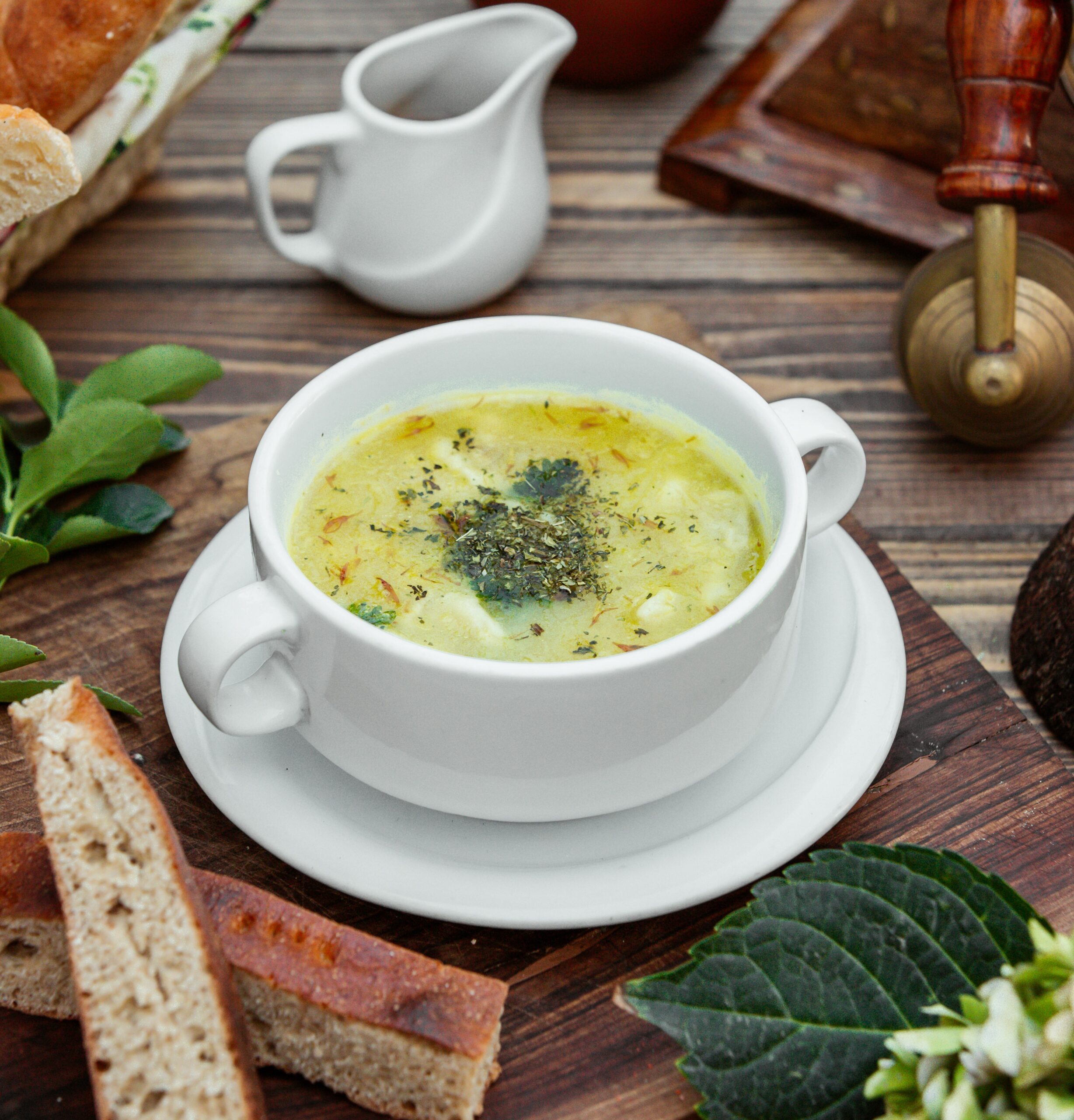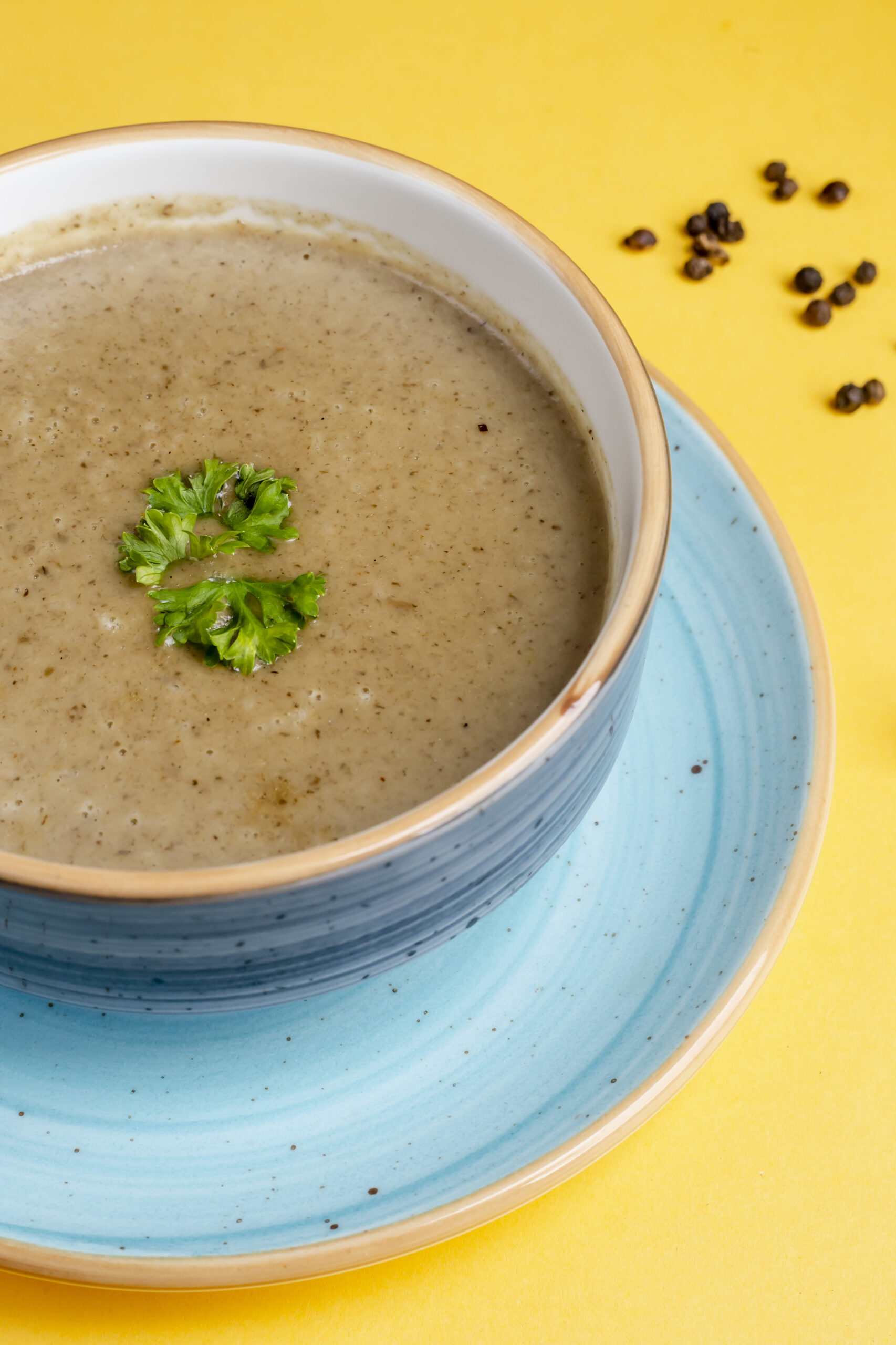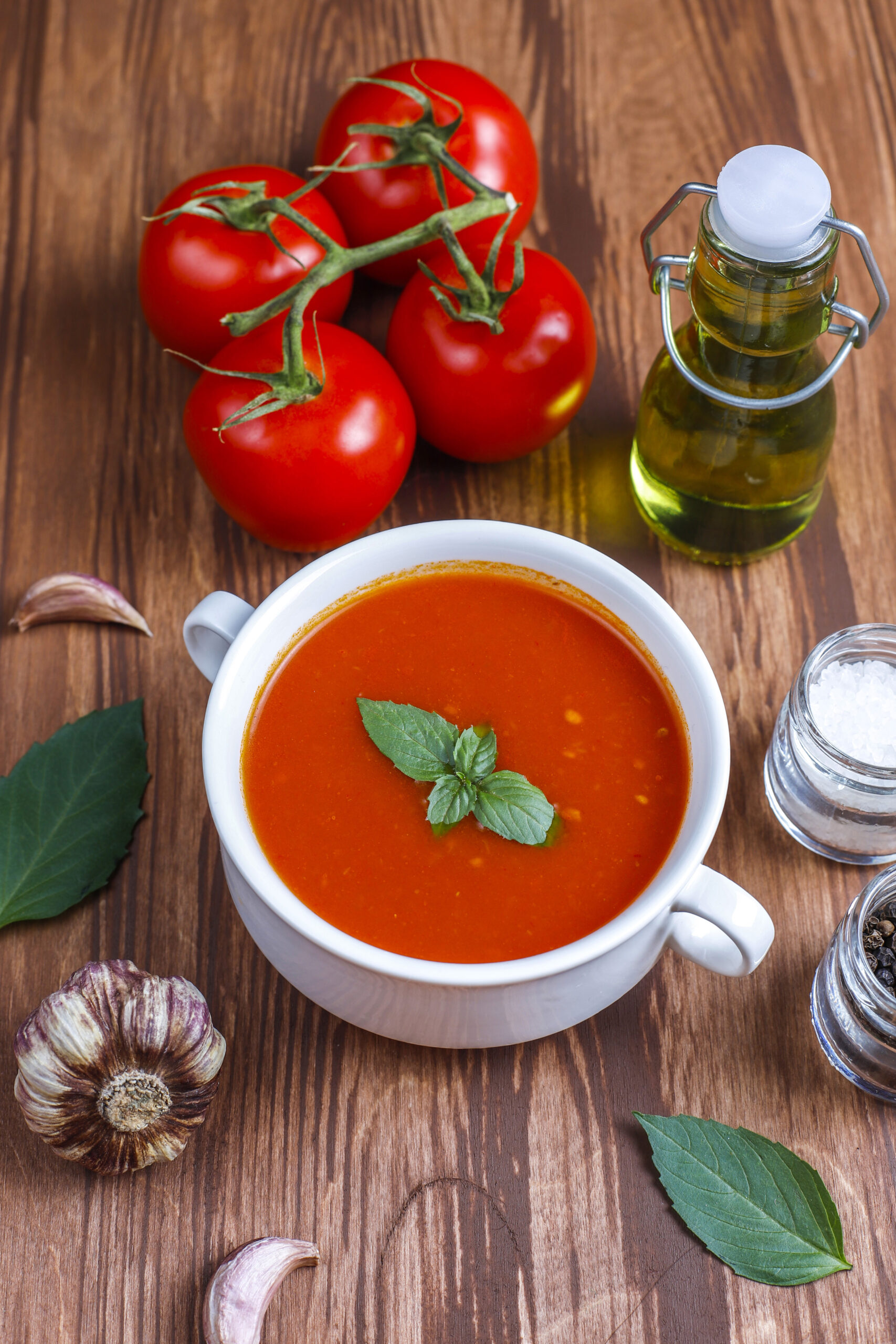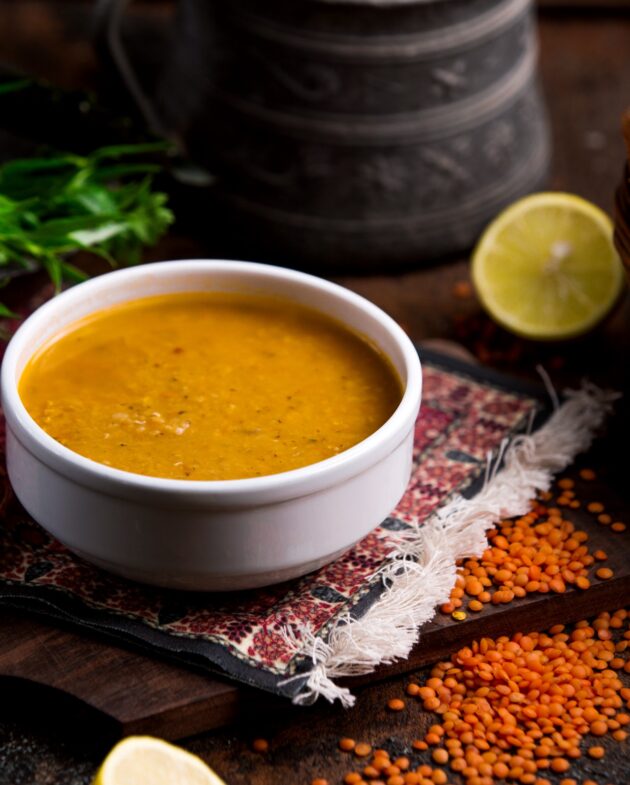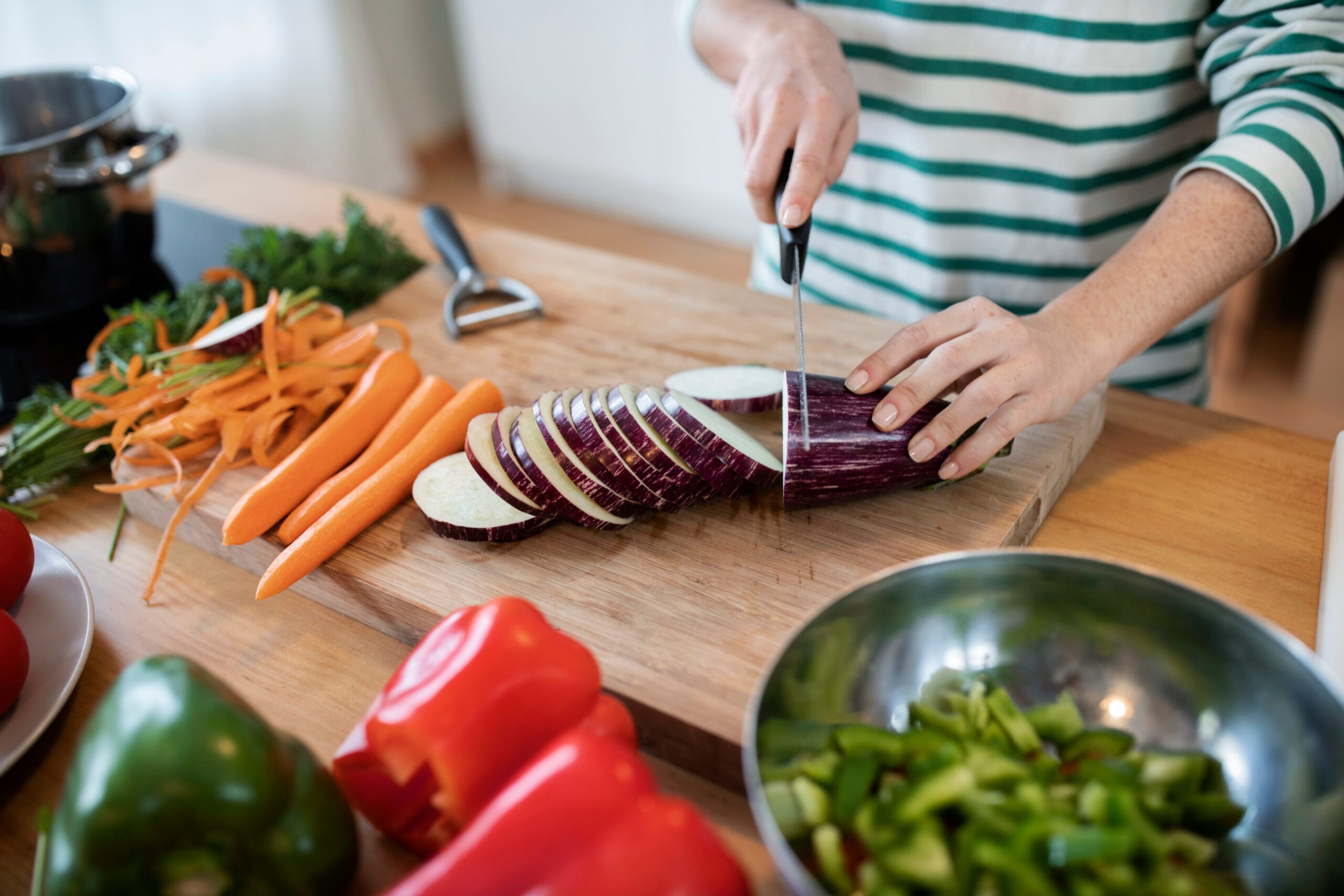- Make the Dough
In a mixing bowl, combine the flour and salt. Beat the egg with a fork and mix it in. Gradually add water while kneading until a soft, elastic dough forms. Cover and let it rest for 20–30 minutes.
- Prepare the Filling
Mix the minced meat with grated onion, salt, pepper, and optional spices. Combine well and keep chilled while you roll out the dough.
- Shape the Dumplings
Roll out the dough thinly on a floured surface. Cut into 2-inch squares. Place a small amount (about ½ tsp) of filling in the center of each square. Fold into a triangle, pressing the edges tightly, then pinch two corners to create a hat-like dumpling shape.
- Simmer the Soup
Bring the broth to a boil in a large pot. Add minced garlic and season with salt. Gently drop dumplings into the boiling broth. Simmer for 8–10 minutes or until dumplings float and are fully cooked.
- Finish and Serve
Once cooked, serve hot in bowls, garnished with fresh herbs like mint or cilantro. Optionally, add a splash of vinegar or squeeze of lemon juice.
Notes:
-
Values vary depending on the meat type (lamb vs. lean beef), whether homemade broth is used, and dumpling size.
-
Using vegetable broth or lean meat can reduce fat and sodium levels.
-
Adding herbs (mint, dill) boosts micronutrients like vitamin K and antioxidants.
- Calories:330-380 kcal
- Protein:18-22 g
- Carbohydrates:28-32 g
- Fat:15-18 g
- Cholesterol:70-85 mg
- Sugars:1 g
Dumpling soup is more than just a warm bowl of broth—it’s a dish that brings people together. Whether you’re enjoying it on a cold evening or preparing it for a festive meal, the comforting aroma and delicate dumplings make it a timeless favorite. Especially in its Dushbara-style form, dumpling soup reflects culinary tradition and care.
The appeal of dumpling soup lies in its simplicity and depth. Each spoonful offers a blend of soft dough, savory filling, and flavorful broth that feels both nourishing and indulgent. Unlike heavier stews or creamy soups, dumpling soup maintains a light texture while still delivering bold taste. This makes it ideal for those seeking comfort food that doesn’t overwhelm the palate. Its gentle warmth and balanced flavors make it a go-to choice for cozy nights, recovery meals, or even elegant starters.
The Cultural Roots of Dumpling Soup
Dumpling soup has deep cultural significance in Central Asian and Caucasus cuisines. The tiny, hand-folded dumplings are often made during family gatherings, turning the cooking process into a shared experience. This tradition adds emotional depth to the dish, making it more than just food—it becomes a symbol of hospitality and heritage.
Health Benefits of Dumpling Soup
When prepared with lean meats and homemade broth, this soup offers a nutritious balance of protein and flavor. Herbs like mint and dill not only enhance taste but also provide antioxidants and vitamin K. For those watching their sodium intake, using vegetable broth or adjusting seasoning levels makes this dish even more adaptable.
Another advantage of this soup is its digestibility. The broth-based nature of the dish makes it gentle on the stomach, especially when paired with anti-inflammatory ingredients like garlic and herbs. This makes dumpling soup a smart choice for individuals recovering from illness or managing sensitive digestion. Plus, the small portion sizes of the dumplings allow for better portion control, helping you enjoy a satisfying meal without overindulging.
Final Thoughts
Whether you’re exploring global flavors or simply craving something warm and satisfying. It’s a dish that blends tradition, nutrition, and comfort—making it a perfect addition to any recipe collection. And with its growing popularity, it’s a great opportunity to showcase culinary heritage while boosting your content’s visibility

